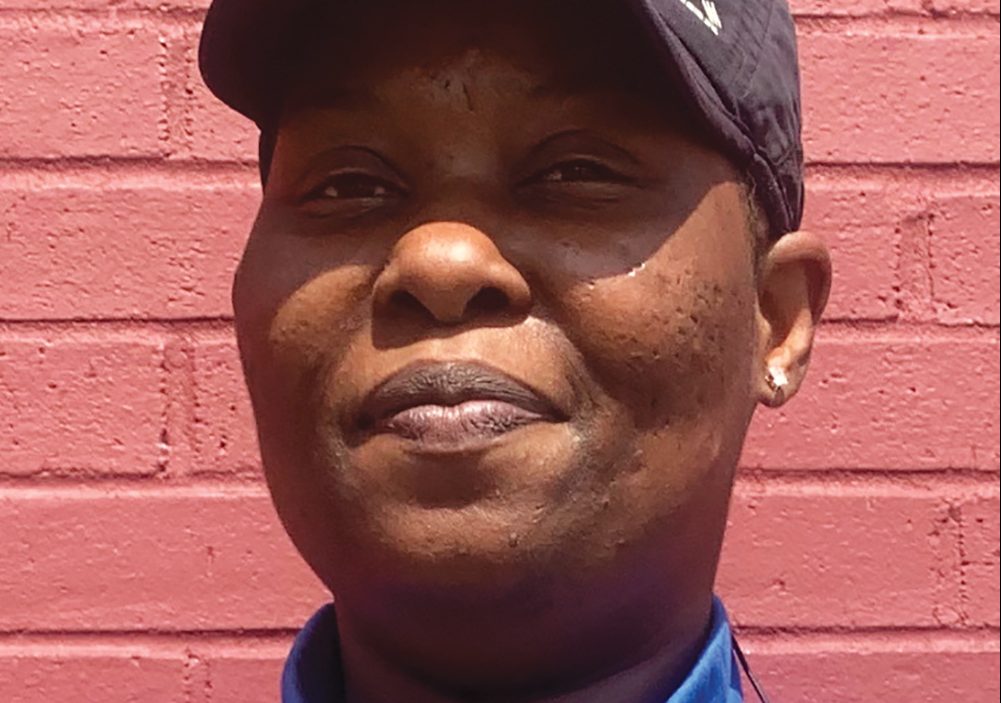I had a nice conversation with Parnicka Motton last week. You never heard of her? She is the first and only female to hold the position of mechanic with the city of Memphis. And after a recent promotion, she’s now the only female service advisor with the city, managing vehicle maintenance for two police precincts.
Parnicka (par-neek-a), 44, was raised in North Memphis and taught how to work on cars by her grandfather. She was an only child and says she found refuge in books and cars.
At 20, she became a deputy jailer at 201 Poplar but, after seven years, decided the work wasn’t for her and found a job at Wackenhut, where she worked in security for several years. That work didn’t inspire her either. Then she got a break: A manager at Jiffy Lube took a chance on her, and she found herself working on cars, at long last. She moved up to assistant manager but, after six years, again wanted more. “There was no place left to grow there,” she says.
Then she saw an ad for an automotive tech with the city. “I was a 42-year-old Black woman applying for a job that had never been held by a woman,” she says. “I got the job in October 2019. I’ve been promoted twice this year, and I’ve never looked back. This is my passion, and hard work has paid off for me.”

It’s a great story. I’m telling it because I think Parnicka Motton’s determination to find fulfilling work can be instructive when we look at the current employment situation. Much has been written about how employers, particularly in the service industry — hotels, restaurants, delivery, etc. — are now unable to fill positions for room service, janitors, servers, dish-washers, and other lower-salaried jobs.
In Tennessee, and in 26 other states, GOP legislatures decided the reason employers can’t find workers is that people are staying home and living off the fat $300-a-week unemployment check that comes from the federal government. Combined with $250 a week in other benefits, an unemployed person can make a magnificent $26,000 a year. No wonder these folks aren’t rushing back to clean hotel rooms or wash dishes, the pols said. We need to cut benefits immediately. So they did.
It’s not working, at least, not so far. In Missouri, where benefits were cut on June 12th, there has been no uptick in job applications. In fact, a June 27th New York Times article reported that in states that have abandoned the federal benefits, responses on job postings were actually below the national average.
So what’s going on? For one thing, I think there are a lot of Parnicka Mottons out there, people driven to find a fulfilling career. And many of them discovered something about themselves while staying home during the pandemic. Namely, they don’t want to spend their lives doing crap work for crap pay at a crappy workplace.
Most of us have moved through lots of shit jobs. Before getting my first journalism gig at 30, I worked as a janitor, night watchman, hay-hauler, shingle-carrier, brick plant worker, seasonal harvest worker, house painter, and school bus driver, to name but a few. I was single, playing in bands, and not particularly career-driven, but I learned a lot about what kinds of jobs I didn’t want to spend my life doing.
I think a lot of people during the pandemic, maybe for the first time in their lives, got the space to think about their jobs, about how they’d been spending 40 hours of their lives each week. And I think many of those folks decided they wanted more control of how they spent their waking hours on this Earth.
If you’re going to try to make it on $12 an hour, why not try doing something on your own? Side hustles became gigs. Food trucks blossomed. Small businesses emerged. People decided they didn’t want a boss. They discovered that controlling your hours cuts down on childcare, commuting, and other expenses.
The pandemic opened a lot of people’s eyes to new possibilities. And chasing possibilities is what life should be all about. Just ask Parnicka Motton.
